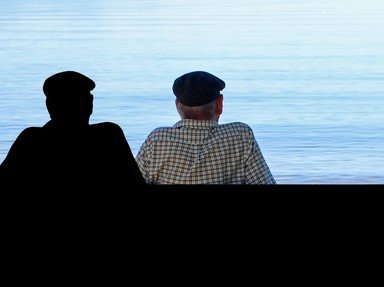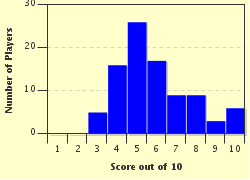Quiz Answer Key and Fun Facts
1. Which stage and film actress, playing a role for which she was nominated for a Best Actress Oscar in 1983, said "no" to her nomination for the 1996 Tony Award for Best Actress in a Musical? [She won Best Actress in 1965 for "Mary Poppins."]
2. This actor was nominated seven times for the Academy Award for Best Actor. He won twice, accepting his first Oscar but had a Native American say "no" on his behalf for his second. Who is he?
3. In 1991, which Irish singer boycotted the Grammy Awards and refused to accept her Grammy for Best Alternative Album? [Don't tear your hair out over this one.]
4. Which French author of "No Exit" said "no" to the Nobel Prize in Literature?
5. In 1973, Henry Kissinger of the United States was awarded the Nobel Peace Prize jointly with a North Vietnamese leader for negotiating the cease-fire agreement that resulted in the US withdrawing its troops from South Vietnam. The North Vietnamese, however, said "no" to the Nobel Prize. Who was he?
6. When he retired as Prime Minister in 1955, Sir Winston Churchill was offered and said "no" to which title of nobility (the highest one)?
7. Who said "no" to his inclusion in the Rock and Roll Hall of Fame? [The baseball Hit King knows.]
8. Which famous American author turned down the Pulitzer Prize for the Novel (later for Fiction) in 1926?
9. Sometimes award recipients are forced to say "no." Which Nobel Prize was Carl von Ossietzky forced to decline?
10. Occasionally someone accepts an award and later says no and returns it. Which Indian, who won a Nobel prize for Literature in 1913, first accepted a knighthood from King George V, only to return it some four years later?
Source: Author
lowtechmaster
This quiz was reviewed by FunTrivia editor
bloomsby before going online.
Any errors found in FunTrivia content are routinely corrected through our feedback system.

